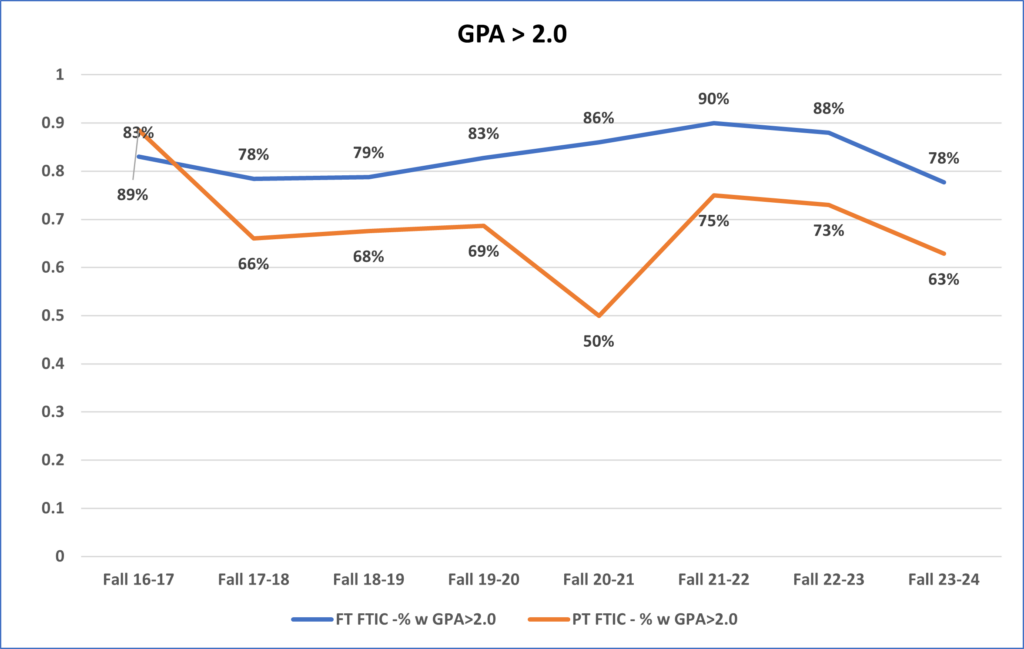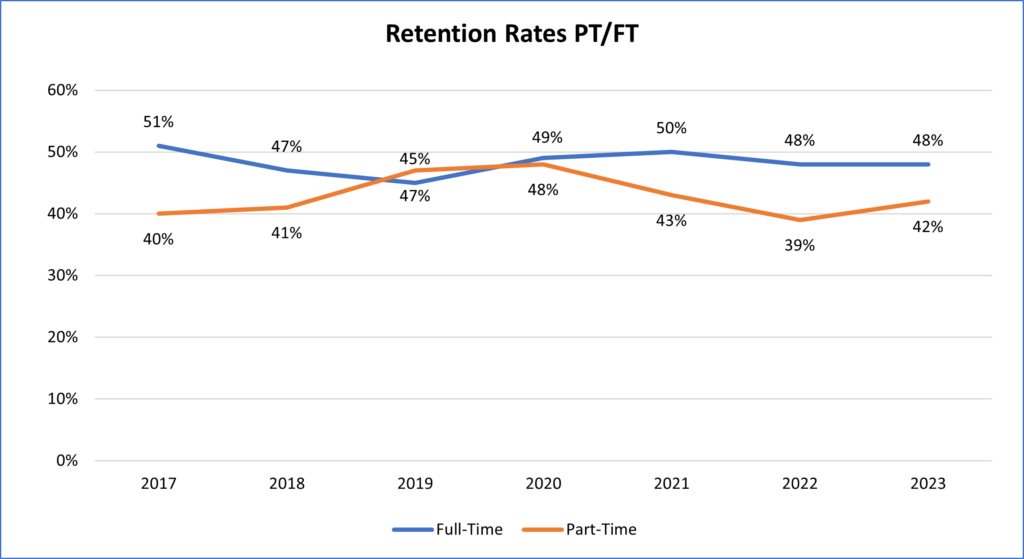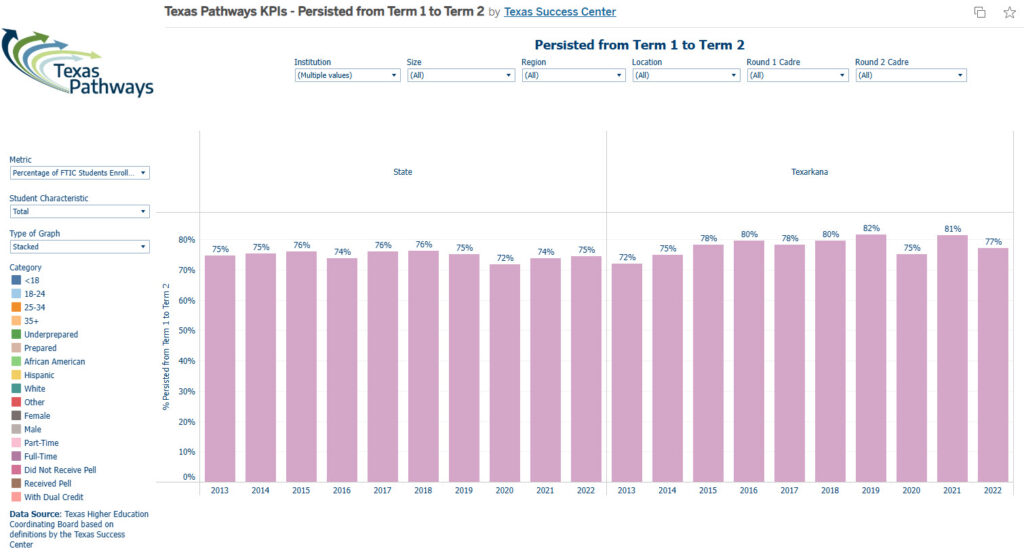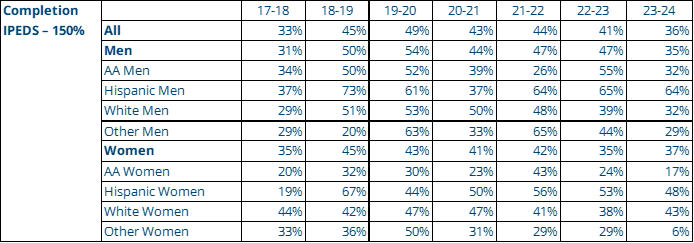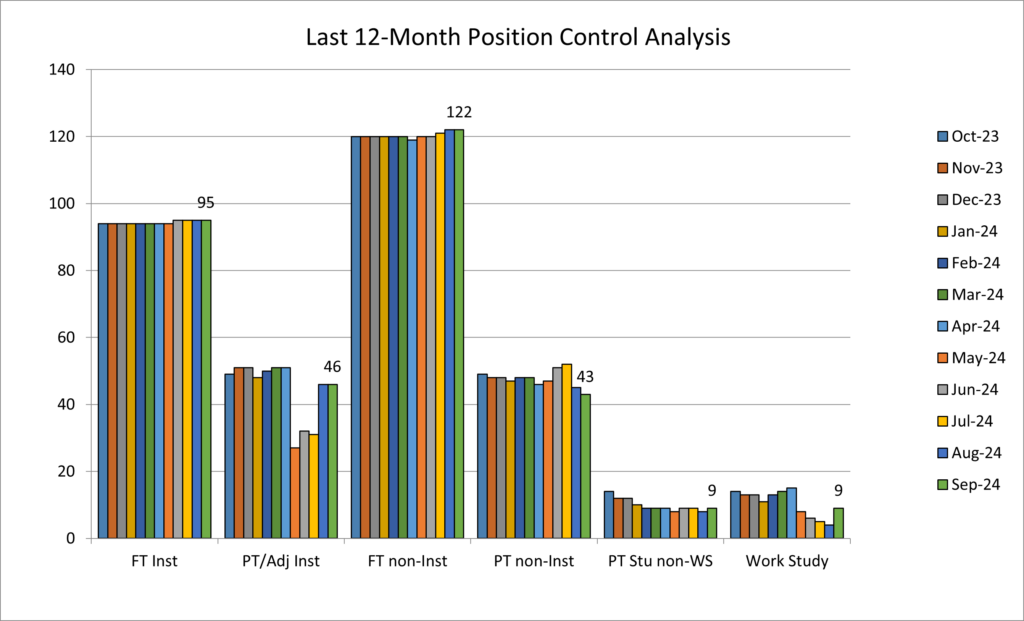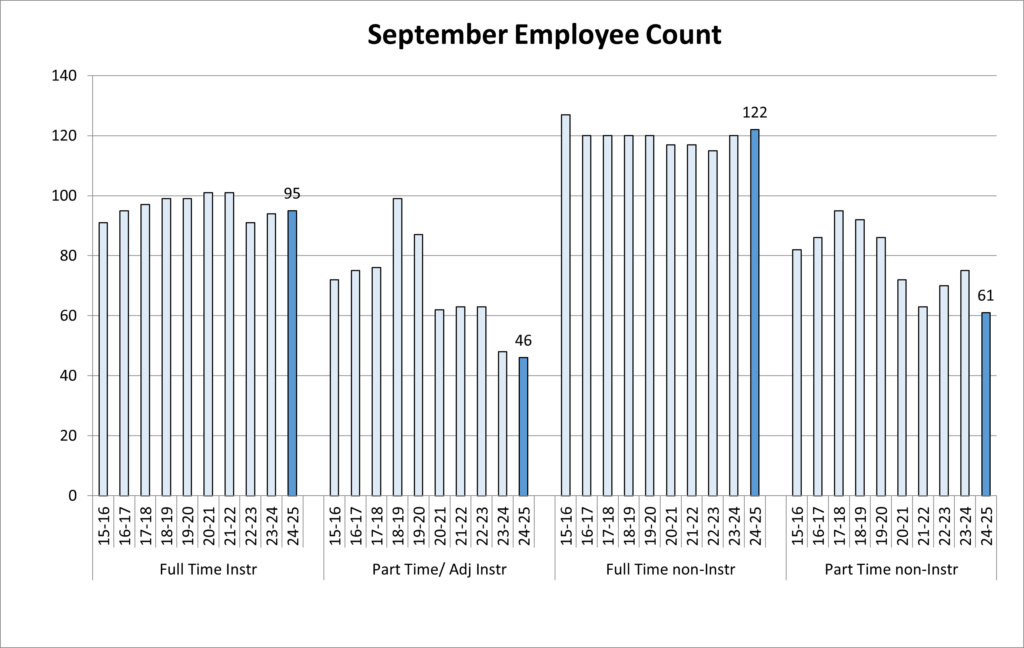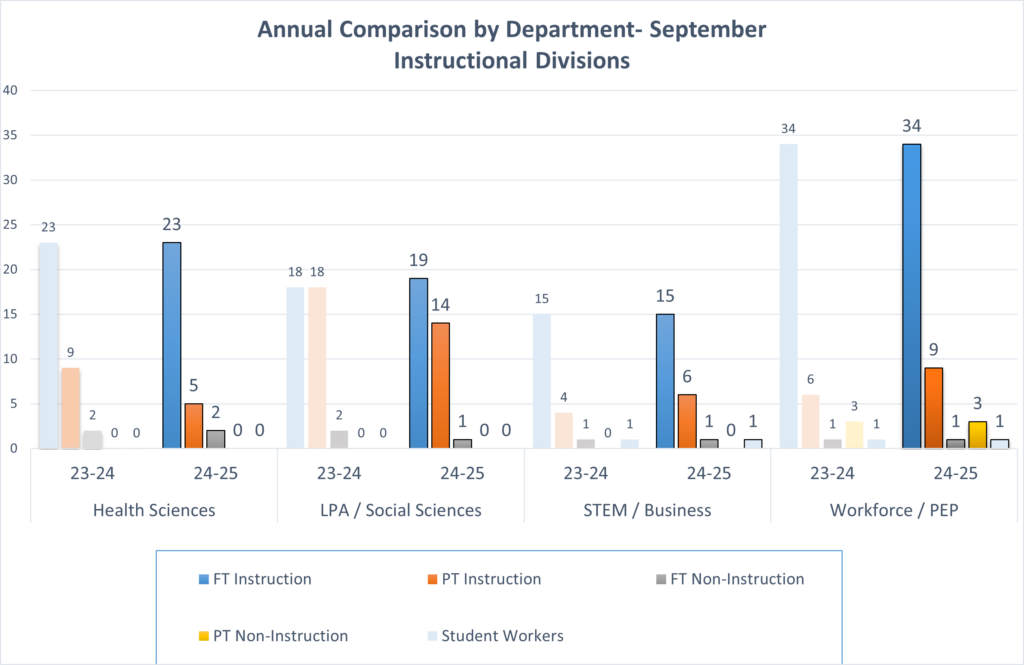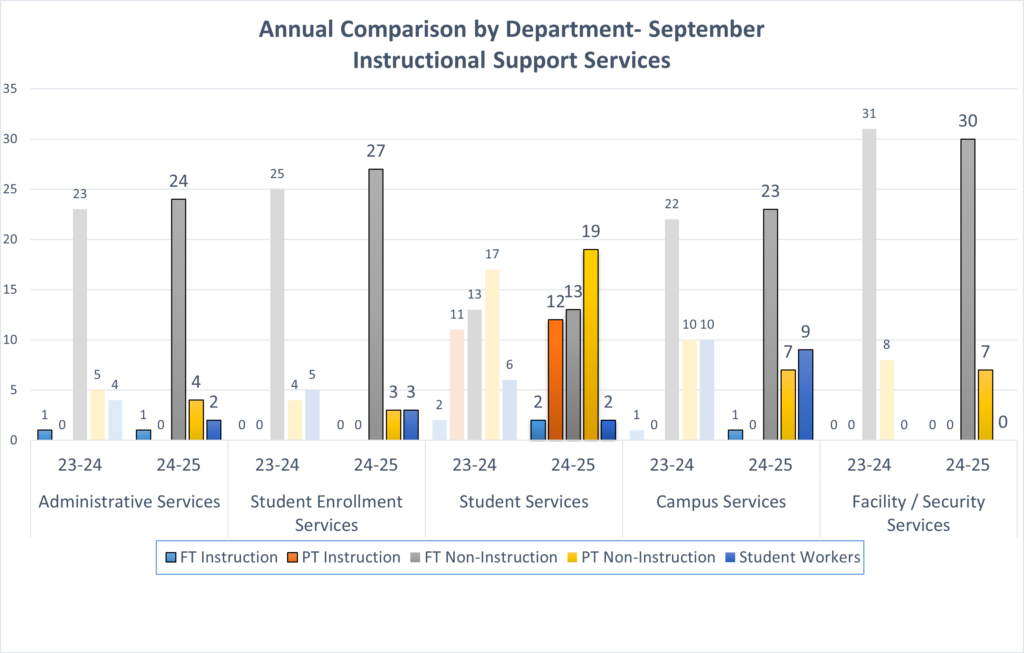Institutional Research & Effectiveness
Institutional Research & Effectiveness (IRE) strives to ensure student success through collecting and reporting data regarding students, faculty, and staff, as well as institutional programs, services and operations.

On This Page
About Institutional Research & Effectiveness
Reports generated from this data are used internally to support institutional decision making and are also transmitted to external agencies. The office serves as a resource for data and statistical analysis related to the College’s students, faculty, staff, programs, services and operations, as well as for survey and questionnaire research. IRE coordinates college-wide assessment efforts and works in conjunction with the Strategic Planning Committee to develop College goals and objectives and to assess institutional success in meeting them. The office also coordinates accreditation efforts through ongoing course evaluation of student learning outcomes, program evaluations, institutional assessment, and communication with accrediting agencies.
Quality Enhancement Plan (QEP) & Student Achievement Goals
The Quality Enhancement Plan (QEP) is an important component of the Southern Association of Colleges and Schools Commission on Colleges (SACSCOC) re-accreditation process. Texarkana College, along with other colleges, universities and schools, must adhere to standards of excellence established through an accreditation process. SACSCOC monitors our compliance with these standards every 10 years for re-accreditation.
So, basically, the QEP is a plan to make sure we’re thinking big and implementing new practices that will continue to improve the student experience at Texarkana College. Our future as an institution depends on our ability to serve you, and our accrediting body, SACSCOC, wants to make sure we’re committed to making positive changes that will enhance your college experience and better prepare you for life post-graduation.
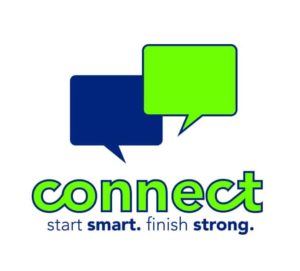 Connections matter.
Connections matter.
That’s why Texarkana College’s Quality Enhancement Plan, Connect: Start Smart; Finish Strong, will connect students with faculty advisors who know their programs and fields of study, understand the barriers and challenges they face, and are committed to helping them succeed.
- These connections, combined with a core Learning Frameworks course and an early alert system, will help ensure that students are starting their college experience by making smart decisions and then finishing strong with a degree or certificate from Texarkana College.
Texarkana College’s QEP will enhance student success, retention, and completion rates using three primary strategies.
- Faculty Advisors
Starting with a pilot group in 2015 and expanding to all Texarkana College students by Fall 2017, students will be assigned faculty advisors within their areas of study to help guide them through their college experience. - Learning Frameworks Class
As part of the core curriculum, this class will provide students with the foundation for a successful college experience. Launching with a pilot group of students in 2015, it will be required for all Texarkana College students by Fall 2017. - Early Alert System
Using state-of-the-art predictive analytics software, Texarkana College’s Early Alert System will monitor student attendance and grades to identify students who are at risk of failing a course so that faculty and staff can help them implement a plan for improvement.
QEP Goals
- Help students improve academic performance and earn higher GPAs
- Make sure students come back from semester to semester
- Help students earn a degree/certificate and transfer if they wish to continue their education
Why did Texarkana College choose this strategy for its QEP?
- Texarkana College’s administration and faculty looked at local, state and national data about student success and completion and brainstormed potential strategies for Texarkana College to consider. They narrowed the list of potential topics down and gathered input in a variety of ways: an employee survey, a student survey, and student focus groups. Respondents reported that they thought enhancing TC’s academic advising would make a positive impact on student success. The Learning Frameworks Course and Early Alert System were designed to make the new faculty advising system more seamless and successful.
Student Achievement Goal 1: Increase the percentage of students experiencing academic success as defined by a GPA greater than 2.0 as compared to a 2013-2014 benchmark. (68% for full time students and 49% for part time students)
Student Achievement Goal 2: Increase the retention of students as compared to as compared to a 2013-2014 benchmark. (50% for full time students and 38% for part time students)
Student Achievement Goal 3: Increase the persistence of students as compared to the state average for Texas community colleges.
Student Achievement Goal 4: Increase the percentage of students who complete within three years as compared to 2013-2014 benchmark as well as state averages for Texas community colleges. (Graduation Rate 150% 2013-2014 benchmark 23%)
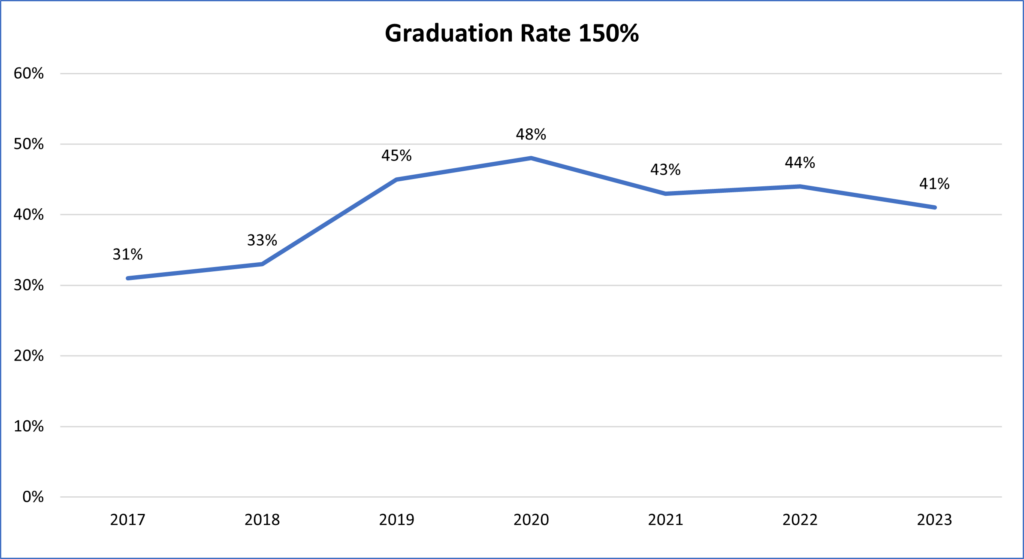
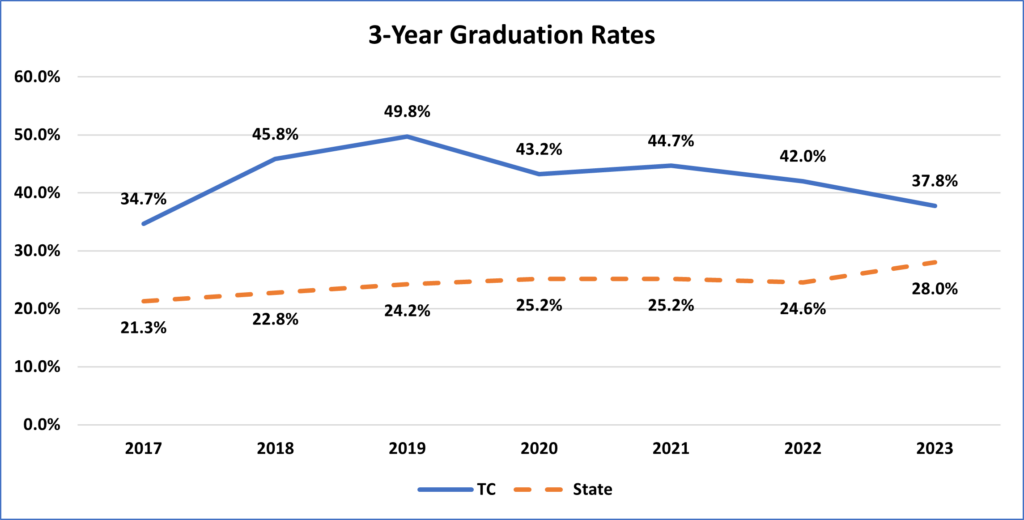
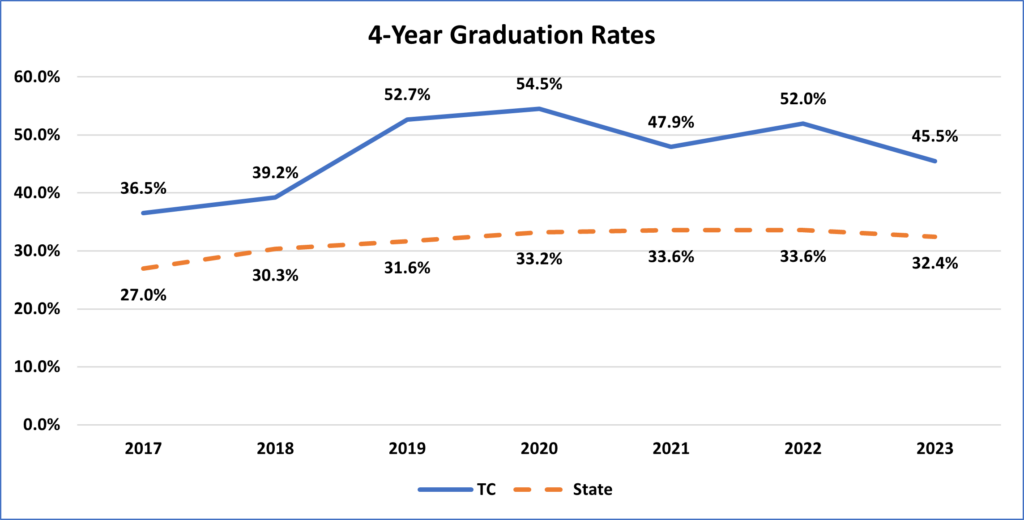
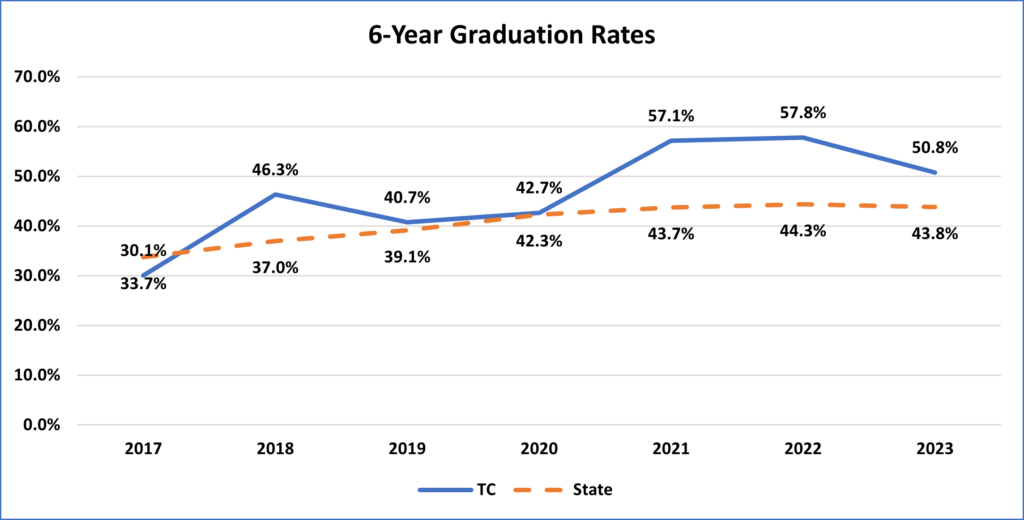
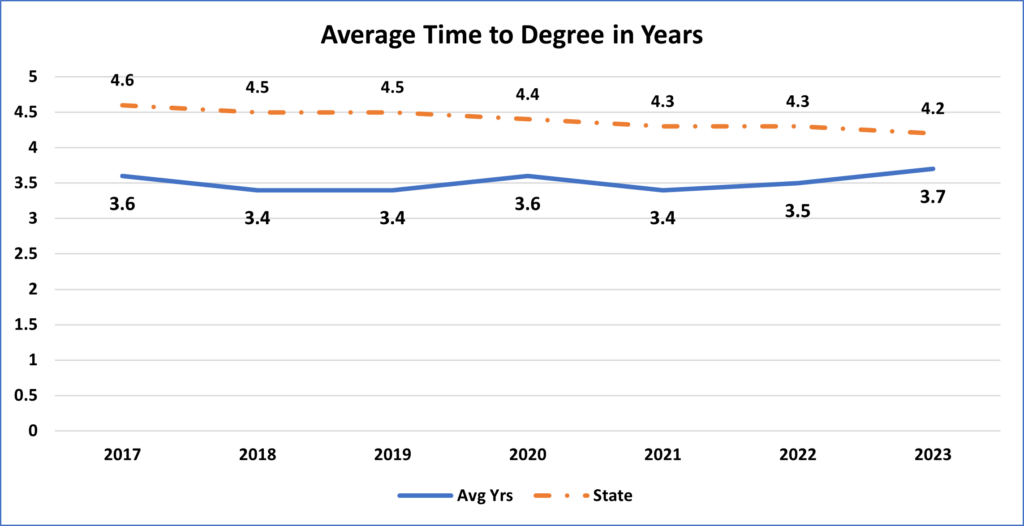
Student Completion Rates
- Data provided by the Texas Higher Education Almanac verify that the three-year graduation rate for students at Texarkana College has increased throughout implementation of the Quality Enhancement Plan, rising from 18.7% in 2014 to 32% in 2015, 32.1% in 2016, 34.7% in 2017, and eventually to 45.8% in 2018, the highest three-year graduation rate of any Texas community college and more than double the state average (22.8%). TC’s 3-Year Graduation Rate peaked in 2019 at 49.7%.
2023
| Completion | 17-18 | 18-19 | 19-20 | 20-21 | 21-22 | 22-23 | 23-24 | |
| IPEDS – 150% | All | 33% | 45% | 49% | 43% | 44% | 41% | 36% |
| Men | 31% | 50% | 54% | 44% | 47% | 47% | 35% | |
| AA Men | 34% | 50% | 52% | 39% | 26% | 55% | 32% | |
| Hispanic Men | 37% | 73% | 61% | 37% | 64% | 65% | 64% | |
| White Men | 29% | 51% | 53% | 50% | 48% | 39% | 32% | |
| Other Men | 29% | 20% | 63% | 33% | 65% | 44% | 29% | |
| Women | 35% | 45% | 43% | 41% | 42% | 35% | 37% | |
| AA Women | 20% | 32% | 30% | 23% | 43% | 24% | 17% | |
| Hispanic Women | 19% | 67% | 44% | 50% | 56% | 53% | 48% | |
| White Women | 44% | 42% | 47% | 47% | 41% | 38% | 43% | |
| Other Women | 33% | 36% | 50% | 31% | 29% | 29% | 6% | |
| Data Source: IPEDS | ||||||||
Decrease in Average Completion Time
- Since 2015, our students have averaged a faster time of completion, originally taking 4.1 years to complete but dropping to only 3.6 years to complete by 2020.
- And students’ average number of semester credit hours completed towards their degrees dropped from the state average of 82 in 2015 to now only 69 average credit hours to earn a degree.

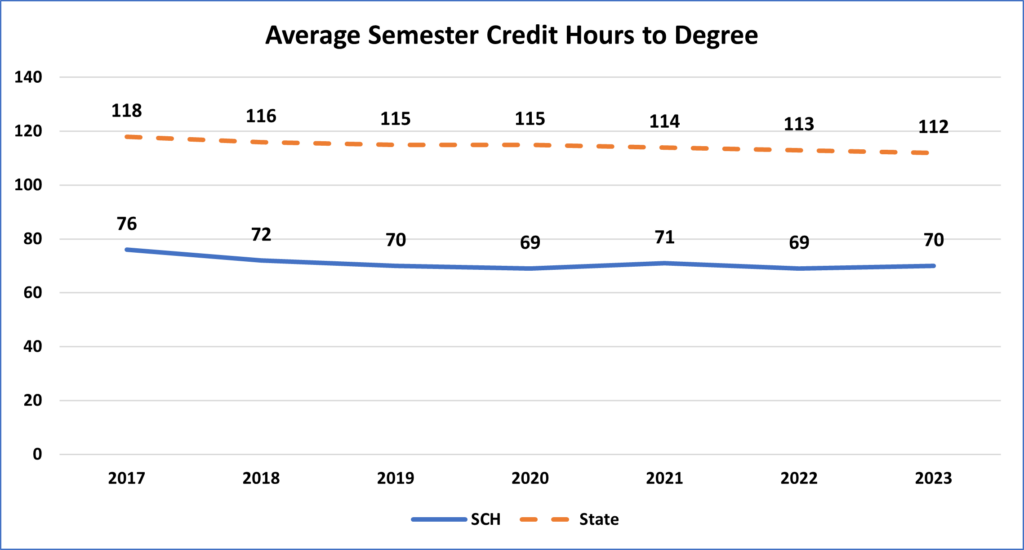
Decrease in Number of Excess Hours Completed
- Since 2015, our students have averaged a lower number of excess course hours, with 45.2% of Associate Degree Graduates not having more than 3 excess credit hours, much lower than the Texas state average of 24.37%.
- Our students’ average excess semester credit hours attempted dropped from 22 sch in 2015, to only 9 sch in 2020, while the state average has remained at 22 excess credit hours.
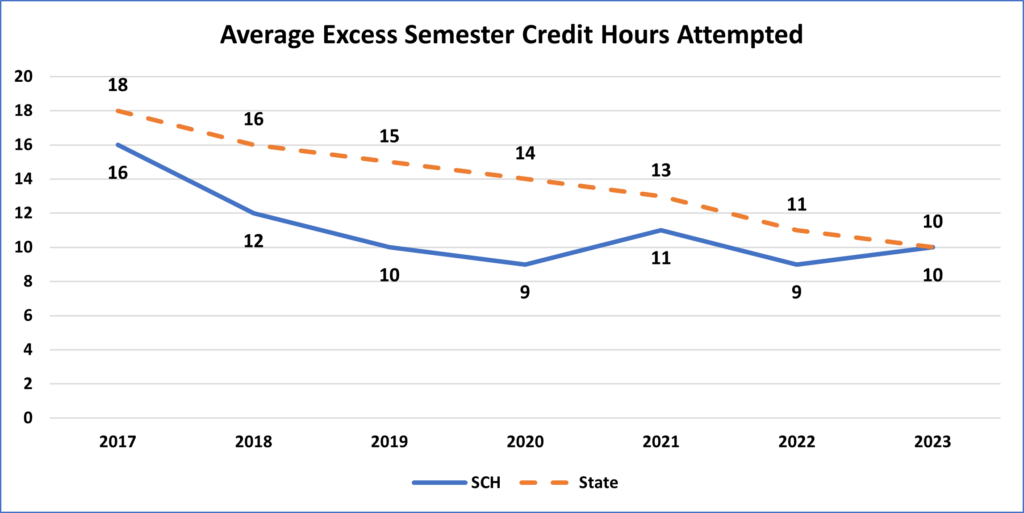
Peer Comparisons
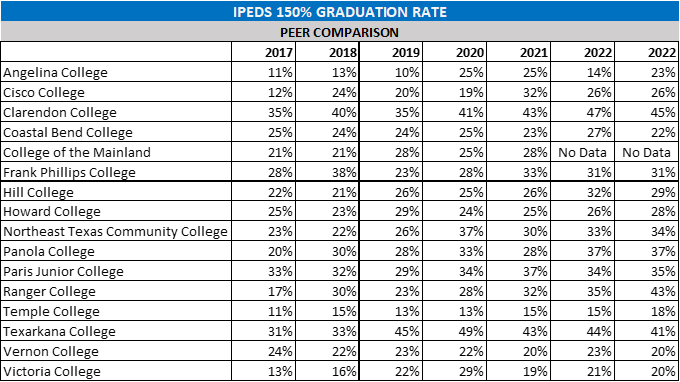
- Texarkana Gazette – Texarkana College: Leader College of Distinction
- Texarkana Gazette – TC has state’s highest rate of graduations
- Texarkana Gazette – TC’s graduation rates are highest in Texas
- Texarkana Gazette – TC board hears positive report, OKs lease
- Texarkana Gazette – Achieving the Dream, Award marks big turnaround for TC
- Texarkana Gazette – Texarkana College earns highest national honor
- Texarkana Gazette – Students don’t just start here. They finish here.
- Four States Living Magazine – The Business of Student Success, Texarkana College Duo Opens Doors of Opportunity
Faculty and Employment
- In the last five-year period, the Board of Trustees approved the following overall increases for all College employees: 3% during the 2021-2022 year, 5% during the 2023-2024 year, and 3% during the 2024-2025 year. No overall increases were approved for the 2020-2021 and 2022-2023 years. Individual increases may occur as a result of assignment or responsibility changes within the scope of the Employee Compensation Plan.
- During that same period, Texarkana College saw a 4% increase in legislative appropriations during the 2020-2022 biennium but experienced a 13% decrease in funding for the 2022-2023 year. The 2023-2024 year saw a 46% increase from the prior year based on the recent funding changes from the state, and the 2024-2025 year shows a 2% decrease from the previous year.
- The methodology used to determine compensation of executive staff is approved by the Board of Trustees, as is the methodology used for all non-instructional staff. A market target salary is determined by comparing salaries of similar positions within the organization, within the immediate area, and with peer colleges. The Vice President of Administrative Services/Human Resources is responsible for obtaining survey data on salaries.
| Texarkana College – Legislative Appropriation (Total Formula Funding) | |||||||||
| By Individual Fiscal Year Percent of Change from prior year | 2016-2017 | 2017-2018 | 2018-2019 | 2019-2020 | 2020-2021 | 2021-2022 | 2022-2023 | 2023-2024 | 2024-2025 |
| $ 6,948,013 | $ 6,939,421 | $ 7,198,828 | $ 7,198,827 | $ 7,484,439 | $ 7,484,439 | $ 6,488,564 | $ 9,476,888 | $ 9,304,025 | |
| -0.12% | 3.74% | 0.00% | 3.97% | 0.00% | -13.31% | 46.06% | -1.82% | ||
| Source: Texas Higher Education Coordinating Board | |||||||||
Information
- Employee Handbook & Compensation Plan
- For comparison on Higher Education Compensation, please visit HigherEdJobs
- Texarkana College Business Affairs
Excellence
Texarkana College: An Achieving the Dream Initiative Institution
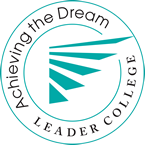 Signifying a commitment to student success and institutional improvement, Texarkana College joined the Achieving the Dream: Community Colleges Count initiative in 2010.
Signifying a commitment to student success and institutional improvement, Texarkana College joined the Achieving the Dream: Community Colleges Count initiative in 2010.
In November 2012 Texarkana College was recognized and awarded with Leader College status within the ATD Network.
Achieving the Dream identifies strategies to improve student success, close achievement gaps and increase retention, persistence, and completion rates.
Achieving the Dream aims to bring about change within community colleges and in state and federal policy. The initiative also seeks to augment knowledge about strategies that increase student success and to expand public support for raising postsecondary attainment levels.
At its core, the initiative seeks to help more students reach their individual goals, which may include earning a community college certificate or degree, attaining a bachelor’s degree, and/or obtaining a better job. Achieving the Dream colleges will maintain a high degree of access for historically underrepresented groups while working to increase the percentage of students who accomplish the following:
- successfully complete the courses they take;
- advance from remedial to credit-bearing courses;
- enroll in and successfully complete gatekeeper courses;
- enroll from one semester to the next;
- earn degrees and/or certificates.
It is a multiyear national initiative to help more community college students succeed. The initiative is particularly concerned about student groups that traditionally have faced significant barriers to success, including students of color and low-income students.
Too many students leave community colleges without earning a certificate or degree, or without transferring to continue their studies. Consequently, they risk losing the opportunity to earn a livable wage. When students complete courses and earn credentials, however, they can improve their own lives, which ultimately benefits the nation.
TC Achieving the Dream Data: College Success Strategies Initiative
Additional Information and Resources
Go to Accreditations page
Go to the Texas Consumer Resource for Education and Workforce Statistics website
